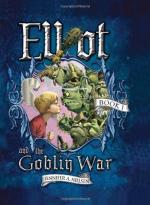“Oh, weel,” would be the reply, made with the usual sigh of resignation, “I hae had a house a gey lang while now, an’ I dinna think I’ve ever wanted ony sic newfangled things as that.”
“That’s what’s wrang,” Mrs. Sinclair would reply. “We dinna want them. If we did, we’d soon get them. What way would the gentry hae a’ thae things, an’ us hae nane?”
“That’s a’ richt, Nellie,” would be the reply. “We wadna ken what to do wi’ what the gentry has got. They’re rich an’ can afford it, an’ forby they need them an’ we don’t. I think I’m fine as I am.”
“Fine as ye are!” with bitter scorn in her tones. “Ye’ll never be fine wi’ a mind like that.”
“Wheesht, woman Nellie! You’re no feart. Dinna talk like that. We micht a’ be strucken doon dead!”
This usually ended the discussion, for Scots people generally—and the workers especially—are always on very intimate terms with the Deity, and know the pains and penalties of too intimate allusions to His power.
Yet, with all her discontent, Mrs. Sinclair found life very much easier than it had been, for now that she had some of the boys started to work, she had made her house “respectable,” and added many little comforts, besides having a “bit pound or twa lyin’ in the store.” So she looked ahead with more hope and a more serene heart. Her children were well-fed and clothed, and the old days of hunger and struggling were over, she thought. Geordie was now taking a day off in the middle of the week to rest, as there was no need for him to slave and toil every day as he had done in the past. After all it would only be a very few years till he would no longer be able to work at all.
Rosy looked the future then, as Mrs. Sinclair, on the day on which young Robert went down the pit, showed off her room “grandeur” to an admiring neighbor.
“My, what braw paper ye hae, Nellie. Wha put it on for ye? Was it yirsel’?” asked the visitor with breath bated in admiration.
“Ay, it was that. I just got the chance o’ the bargain, an’ I thocht I’d tak’ it,” she replied, with subdued pride.
“Oh, my! it’s awful braw, an’ sae weel matched too! I never saw anything sae well done. You’re rale weel-off, do ye ken.”
“My God! What’s wrang?” cried Nellie suddenly, gazing from the window with blanched cheeks.
“I doot there’s been an accident. I heard the bell gang for men three tows a’ rinnin’, an’ I see a lot o’ men comin’ up the brae. I doot the pit’s lowsed.”
Both of them hurried to the door, and found that already a crowd of women had flocked to the end of the row, and were standing waiting anxiously on the men, in order to learn what had happened. They did not talk, but gazed down the hill, each heart anxious to know if the unfortunate one belonged to her. The sickening fear which grips the heart of every miner’s wife, when she sees that procession from the pit before the proper quitting hour, lay heavy upon each one. The white drawn faces, the set firm lips, and the deep troubled breathing told how much the women were moved.




